In today’s digital landscape, having a strong online presence is essential for any business striving for success. A company’s website serves as the virtual storefront, the first impression potential customers receive, and a crucial component of brand identity. However, simply having a website is not enough. To truly compete and thrive, a business must develop its website with a marketing agency.
A marketing agency brings expertise, strategic insight, and a data-driven approach to website development. From search engine optimization (SEO) to user experience (UX) design, a marketing agency ensures that your website not only looks appealing but also performs effectively. This blog will explore the many reasons why a business should develop its website with a marketing agency, outlining the benefits, strategies, and long-term impact on brand success.
The Role of a Marketing Agency in Website Development
A marketing agency does more than just design a website—it creates a holistic digital strategy that aligns with your business goals, ensuring long-term success and scalability. By incorporating cutting-edge technologies, data analytics, and consumer behavior insights, a marketing agency crafts a website that not only attracts visitors but also converts them into loyal customers. Here are the key ways in which a marketing agency adds value:
1. Professional Expertise and Experience
Developing a website is a complex process that involves web design, development, branding, and marketing. A marketing agency provides a team of experts specializing in different areas, ensuring that your website is built with precision and efficiency. Beyond technical expertise, a marketing agency understands market trends, consumer behavior, and competitive landscapes. By leveraging these insights, they craft a website that not only looks visually appealing but also delivers measurable business results. Whether it’s optimizing for conversions, enhancing brand positioning, or implementing cutting-edge digital strategies, a marketing agency ensures that your website becomes a dynamic tool for growth and success.
2. Strategic Branding and Design
A website should be an extension of a brand’s identity. A marketing agency crafts a visually appealing and cohesive website that reflects your brand’s values, colors, and message, enhancing customer trust and engagement. Beyond aesthetics, a well-developed website communicates professionalism, builds credibility, and provides a seamless experience that keeps visitors engaged. By leveraging modern design techniques and consumer psychology, marketing agencies ensure that every element of your website—from the layout to the typography—aligns with your brand’s narrative. This strategic approach not only strengthens customer relationships but also fosters long-term brand loyalty, setting your business apart from the competition.
3. SEO Optimization for Visibility
A website is ineffective if potential customers cannot find it. Marketing agencies implement SEO strategies to ensure your website ranks high on search engines, driving organic traffic and increasing your online presence. By conducting in-depth keyword research, optimizing on-page elements, and building high-quality backlinks, agencies enhance visibility across search engines. They also focus on local SEO to target specific demographics, ensuring that businesses appear in relevant searches. Furthermore, continuous monitoring and performance analysis allow for real-time adjustments, ensuring sustained growth in traffic. Without SEO, even the most well-designed website may fail to reach its intended audience and generate meaningful engagement.
4. Conversion-Focused User Experience (UX)
A good website is not just about looks; it should be designed for conversions. Marketing agencies optimize user experience (UX) by ensuring smooth navigation, fast loading times, and strategic call-to-actions (CTAs) that encourage visitors to take action. Additionally, they conduct in-depth user behavior analysis to refine site elements, ensuring visitors are guided naturally toward desired actions. By implementing A/B testing, heatmaps, and usability research, agencies continuously improve the website’s effectiveness. Accessibility and inclusivity are also prioritized, ensuring a seamless experience for users of all backgrounds. These strategies not only increase conversions but also enhance customer satisfaction and brand credibility.
5. Mobile Responsiveness and Compatibility
With most users accessing websites via mobile devices, having a responsive website is critical. A marketing agency ensures your site is mobile-friendly, enhancing user engagement and search engine rankings. Mobile optimization goes beyond resizing elements—it includes touch-friendly navigation, optimized images, and fast-loading pages that prevent user frustration. Marketing agencies also implement adaptive designs that adjust dynamically to different screen sizes, ensuring seamless functionality across all devices. Additionally, mobile SEO strategies enhance visibility, ensuring your site ranks well on mobile searches. By prioritizing mobile responsiveness, businesses can tap into a larger audience, improve user experience, and increase conversion rates significantly.
6. Content Strategy and Lead Generation
Content is king in digital marketing. Agencies create high-quality content that educates, engages, and converts visitors into customers. Blogs, landing pages, and multimedia content play a key role in lead generation. Additionally, compelling storytelling and interactive media enhance user experience and build emotional connections with audiences. Marketing agencies also implement content strategies tailored to specific audience segments, ensuring relevance and engagement. By leveraging data-driven content marketing techniques, agencies optimize messaging, improve search engine rankings, and maximize conversion potential. Regular updates, trend analysis, and audience insights keep content fresh and impactful, making it a powerful tool for long-term business growth.
7. Data-Driven Performance Analysis
Marketing agencies use analytics to track website performance, user behavior, and traffic sources. These insights allow for continuous improvements and adjustments to maximize effectiveness. By leveraging tools like Google Analytics, heatmaps, and conversion tracking, agencies identify trends and pinpoint areas that need optimization. This data-driven approach ensures that marketing strategies remain adaptable, improving user engagement and retention. Additionally, real-time reporting enables businesses to measure ROI accurately, making informed decisions about content, design, and advertising. Without these insights, companies risk wasting resources on ineffective strategies, hindering their growth and digital success.

Benefits of Developing a Website with a Marketing Agency
A website is more than just a digital placeholder; it is an essential component of a business’s marketing and sales strategy. When developed with a marketing agency, a website transforms into a dynamic platform that attracts, engages, and converts visitors into loyal customers. Businesses that invest in professional website development benefit from increased visibility, enhanced credibility, and higher conversion rates. Below are the key advantages of working with a marketing agency to develop your business website.
1. A Website that Works for You
Unlike DIY website builders, a marketing agency creates a website tailored to your business needs, ensuring that it functions as a powerful sales and marketing tool. With expert insight and advanced digital strategies, a marketing agency enhances your website’s performance, optimizing it for conversions and customer engagement. They ensure seamless integration with CRM systems, e-commerce platforms, and automation tools to streamline operations and maximize efficiency. Additionally, marketing agencies focus on scalability, designing websites that can evolve alongside your business, allowing for future growth and expansion without requiring a complete redesign.
2. Time and Cost Efficiency
Developing a website in-house can be time-consuming and costly. A marketing agency streamlines the process, delivering high-quality results efficiently, saving both time and money. Agencies follow a structured workflow that includes thorough research, strategic planning, and execution, reducing the risk of errors and delays. With access to the latest tools and technologies, they optimize every aspect of website development, from design to security, ensuring a flawless final product. Additionally, a marketing agency provides expert project management, keeping the process on track and within budget. This professional approach allows businesses to focus on core operations while ensuring a top-tier website.
3. Competitive Advantage
A professionally developed website gives you an edge over competitors with outdated or poorly designed sites. Agencies ensure your website stands out by incorporating the latest design trends, interactive features, and personalized user experiences that captivate visitors. They also focus on website speed, security, and accessibility, ensuring a smooth and reliable browsing experience. Additionally, agencies integrate conversion-driven elements like persuasive CTAs and strategic content placement, maximizing engagement and sales potential. With a cutting-edge website, businesses can position themselves as industry leaders, attracting and retaining customers more effectively in an increasingly competitive digital landscape.
4. Continuous Support and Maintenance
Websites require ongoing updates, security checks, and optimizations. A marketing agency provides continuous support to ensure your site remains up-to-date and secure. This includes regular performance audits, software updates, and security enhancements to prevent cyber threats. Additionally, agencies offer troubleshooting services, ensuring any technical issues are swiftly resolved. They also analyze user behavior and feedback to make data-driven improvements, keeping the site aligned with evolving market trends. By maintaining optimal website functionality and security, a marketing agency helps businesses sustain a seamless online experience, ultimately fostering customer trust and long-term success.
5. Integration with Digital Marketing Strategies
A website alone is not enough. Marketing agencies integrate digital strategies such as pay-per-click (PPC) advertising, email marketing, and social media to drive more traffic and conversions. They leverage advanced targeting techniques to reach the right audience at the right time, ensuring maximum return on investment. By utilizing remarketing campaigns, automation tools, and data-driven insights, agencies create highly personalized marketing efforts that nurture leads and boost conversions. Additionally, they continuously optimize these campaigns based on performance metrics, ensuring sustained growth and adaptation to market trends. This holistic approach transforms a website into a dynamic sales and engagement platform.
Key Strategies Used by Marketing Agencies in Website Development
Developing a website is more than just creating an online presence; it requires a well-thought-out strategy to ensure it serves as a powerful tool for business growth. Marketing agencies use a combination of proven techniques and innovative approaches to craft websites that attract visitors, keep them engaged, and convert them into loyal customers. Below are some of the key strategies employed by marketing agencies to develop high-performing websites:
- SEO Best Practices – Ensuring the website is optimized for search engines through keyword research, meta descriptions, and backlinks.
- Responsive Design – Making sure the website adapts to various screen sizes and devices.
- High-Quality Content Creation – Crafting engaging, informative, and keyword-rich content to attract and retain visitors.
- Lead Generation Techniques – Implementing forms, landing pages, and CTA buttons that convert visitors into leads.
- Performance Optimization – Enhancing page speed, reducing load times, and improving overall functionality.
- Security Measures – Protecting websites from cyber threats through SSL certificates, firewall implementation, and regular updates.
- Analytics and Reporting – Monitoring website performance through tools like Google Analytics to make data-driven improvements.
Common Mistakes Businesses Make When Developing a Website Without a Marketing Agency
Many businesses attempt to develop their websites in-house or through low-cost solutions, only to find that their sites underperform. Without the strategic guidance of a marketing agency, companies often make critical mistakes that hinder user engagement, SEO rankings, and conversion rates. Below are some of the most common pitfalls businesses face when developing a website without professional marketing expertise:
- Lack of SEO Strategy – A poorly optimized website will struggle to rank on search engines, resulting in low traffic.
- Slow Load Times – A sluggish website leads to high bounce rates and lost potential customers.
- Poor UX Design – Confusing navigation and cluttered layouts drive visitors away.
- Inconsistent Branding – A website without brand cohesion weakens customer trust.
- No Mobile Optimization – Non-responsive websites lose a significant portion of mobile users.
- Ignoring Analytics – Without performance tracking, businesses cannot identify and fix weak areas.
Frequently Asked Questions
1. Why should I hire a marketing agency instead of using a website builder?
A marketing agency provides expertise, strategic planning, and a data-driven approach, ensuring your website is optimized for performance, SEO, and conversions—something website builders cannot achieve.
2. How does SEO impact my business website?
SEO helps your website rank higher on search engines, increasing visibility, organic traffic, and potential customer conversions.
3. What is the cost of developing a website with a marketing agency?
Costs vary based on complexity and requirements, but investing in a professionally developed website ensures long-term success and ROI.
4. How long does it take to develop a website with a marketing agency?
The timeline depends on the project scope but typically ranges from a few weeks to a few months, ensuring a high-quality, optimized website.
Conclusion
Developing a website with a marketing agency is not just about aesthetics—it’s about building a strategic, performance-driven online presence that attracts, engages, and converts visitors. From SEO and UX design to lead generation and security, a marketing agency ensures that your website becomes a powerful tool for business growth. Investing in professional website development is a long-term strategy that sets your business apart and ensures digital success.

